Summer is about to flee here in the north, but September is the perfect time to visit Greece – not too hot, fewer tourists, lower prices, warm water. So in September 2012 I was off 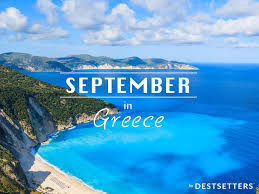 to my second favorite place in the world. (Wisconsin is first.)
to my second favorite place in the world. (Wisconsin is first.)
That was then. This is now. I can’t travel that far any more, and I get so homesick for Greece. At least I can read my travel diaries and see pictures online and tell you all about it again and again and again and… So humor me.
And I really like having company with me, so why not come along if you can? It will be a lovely break from all our serious Posts. Perhaps you’ll enjoy it again. I always did. I’ve included many pictures so maybe you won’t get bored. It won’t be easy to squeeze you all into my airliner seat, but let’s try.
Greece again? you ask (again)
I’ve told you most of this before:
1 Because I love the place. I described in Post 2 how I first knew it. Do you have places like that? I hope so. I long wondered if a Greek imperial soldier got too cozy with one of my great-great-great-great-… grandmothers, but Ancestry.com says I have no Greek blood. That isn’t how it feels. So there seems to be no natural explanation for this. It just is.
2 Because there is a life principle here. C.S. Lewis (G.K Chesterton?) wrote somewhere that one knows more about the nature of places by knowing one place well than by seeing many places. Likewise a man knows more about women by knowing one woman well than by bouncing from woman to woman. It’s the same with churches and towns and many things. I think one problem with Western Christianity is that they keep changing forms of worship, so that people don’t know any one form well and can’t really enter into worship.
I have lived this out in many ways, and I’m sure it’s true. Has all this stability made my life boring, stifling, narrow? I think not. I think it has added depth to my life.
3 Because as I got older it grew so much easier to do familiar things. (Just wait till you’re ancient.) I now prefer the same restaurants, the same old house, definitely the same wife! And please don’t ask me to upgrade my computer system yet again. Leave it alone!
So, though I had visited Greece many times, I wanted to do it again. In Crete,  my special place, it now felt kind of like arriving at grandma’s and grandpa’s house, and we wanted to go there again and again, didn’t we? In some places I knew people, knew the back roads, towns and churches and where the local doctor was. I now knew enough Greek to kind of communicate: Pou einai e toualeta? (It was right back there.) Tha ethela ekaton bougatses, parakalo. Ekete peanut butter? (Yes, they did! and pardon my declensions, you Greeks.) Only once when I tried to order something did the waitress fall into paroxysms of laughter!
my special place, it now felt kind of like arriving at grandma’s and grandpa’s house, and we wanted to go there again and again, didn’t we? In some places I knew people, knew the back roads, towns and churches and where the local doctor was. I now knew enough Greek to kind of communicate: Pou einai e toualeta? (It was right back there.) Tha ethela ekaton bougatses, parakalo. Ekete peanut butter? (Yes, they did! and pardon my declensions, you Greeks.) Only once when I tried to order something did the waitress fall into paroxysms of laughter!
And I had seen enough new ruins. I now went chiefly to relax and recover and say my prayers, glory in the great scenery and weather, lie on the beach and read, and above all just take in the atmosphere: sit in tavernas, watch people, visit nearby churches and monasteries for holy days. (As I’ve told you, I wear “civvies” when I travel.)
4 Because I love how Greece still integrates Orthodoxy with culture without becoming heavy-handed about it. Orthodoxy 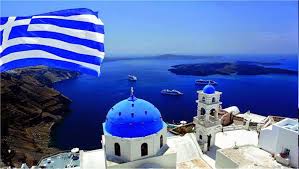 there feels free and light and “airy”. Some Posts back I quoted from a book written by a woman of Patmos: Orthodoxy “disapproves of any religious fanaticism – its views are far too human.” I’m not sure this is true everywhere: some varieties of Orthodoxy seem dark and heavy to me. Give me sunny Mediterranean Orthodoxy!
there feels free and light and “airy”. Some Posts back I quoted from a book written by a woman of Patmos: Orthodoxy “disapproves of any religious fanaticism – its views are far too human.” I’m not sure this is true everywhere: some varieties of Orthodoxy seem dark and heavy to me. Give me sunny Mediterranean Orthodoxy!
When I first visited in 1985 Greece seemed Third World in many ways and also very Orthodox. Now the place is definitely First World (I suspect because of television), yet it remains very Orthodox and, at least from what I’ve experienced, it’s still popular. This is quite unlike what has happened in western Europe where churches are often almost empty. Some other “spirit” (Spirit?) is at work in Orthodoxy. (I’m not excluding other Orthodox lands. I’m just talking about what I know.)
Travel in Greece today and you’ll still find chapels and churches all over, many churches filled on Sunday. Travel Athens by rail or bus and you’ll still see people crossing themselves as they pass churches. Orthodox radio has expanded, with more FM stations now presenting Orthros, Liturgy, Vespers and Compline daily. On Sundays you can always find several Divine Liturgies on television. On TV news, a priest is blessing the opening of the first day of school, or there is an hour’s presentation covering a feast day celebration on I forget which island, including the Bishop’s entire sermon. Who swears in the Greek government? 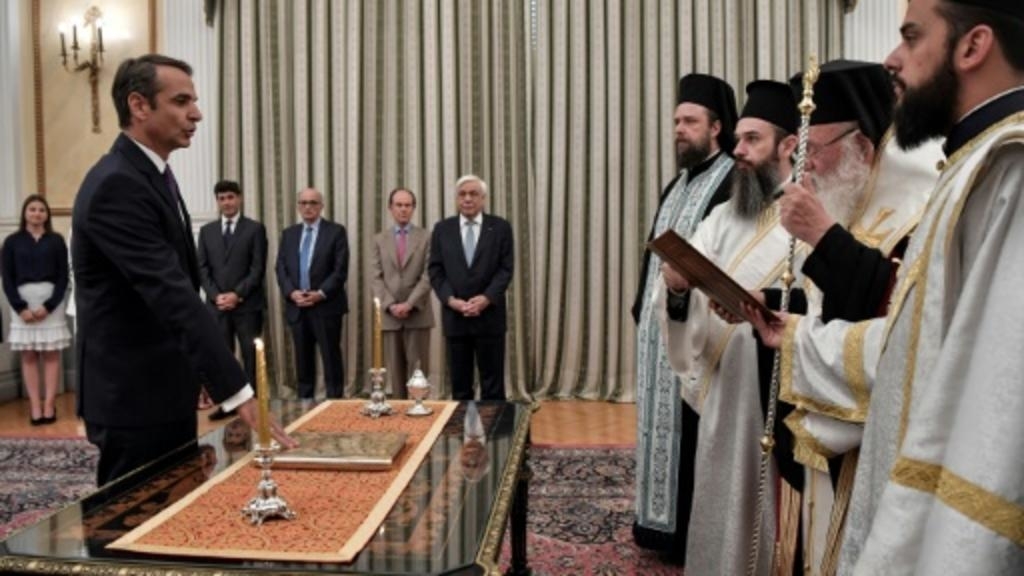 The Archbishop of Athens. The face of the previous prime minister, a secularist, suggested he didn’t much like it, but there he stood as the Archbishop sang “O God save thy people and bless thine inheritance…”
The Archbishop of Athens. The face of the previous prime minister, a secularist, suggested he didn’t much like it, but there he stood as the Archbishop sang “O God save thy people and bless thine inheritance…”
Is there more true piety because of this integration of Christianity and culture? I think surely more than in Western Europe. One of my Anglican seminary professors said he guessed that in any society, only about 10% of people are seriously devout. In any organization – religious, political, 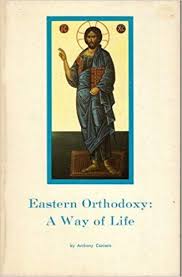 social – that has existed past the first generation, there is naturally a lot of nominal religion. Maybe we value our Orthodoxy more here in the West where it isn’t easily accessible and we have to struggle for it. Who can say? In any event Greece preserves something of the old way: an Orthodox society, Orthodoxy as what we say it is – a way of life. So different from our spiritually fragmented life in the West.
social – that has existed past the first generation, there is naturally a lot of nominal religion. Maybe we value our Orthodoxy more here in the West where it isn’t easily accessible and we have to struggle for it. Who can say? In any event Greece preserves something of the old way: an Orthodox society, Orthodoxy as what we say it is – a way of life. So different from our spiritually fragmented life in the West.
So… are we going to sit here all day listening to me rambling on? Is the plane ever going to take off? .
Yes. Here we go.
Some Peculiar Traveling
We missed connections going over and stayed overnight in Montreal. I also missed connections on the return trip and stayed over in Toronto. Of my last six trans-Atlantic flights, I had missed connections and lost a day on four of them. One transient blessing came of it: at the airport hotel in Frankfurt in 2010 Khouria Dianna discovered a truly wonderful beer, which unfortunately we can’t get it in the United States.
So instead of leaving Montreal at 6 p.m. arriving in Athens next morning, our plane left Montreal next morning. Going east we lost seven hours, of course, so we arrived in Athens at 2 a.m. To find everything closed up? Not at all. This was Greece! The airport was busy, car rental agencies and restaurants were open, local transpiration still running. Do Greeks ever sleep? We got to our hotel at 3:30 a.m. and foolishly went touring early next morning. Dianna pulled me through as much of the Acropolis Museum as I could stay awake for, which wasn’t much. The following year we toured it again, and I could scarcely remember anything I had seen.
The second day, still jet-lagged, we took the ferry to Aegina and the blessed saint. Here’s how tired we still were: When the ferryboat 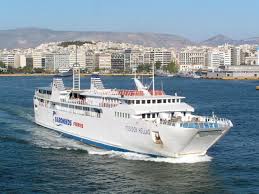 stopped at Aegina we waited for the usual rush of people for the exit. There wasn’t much of one, so we kept sitting and staring. Then I said I think the boat is moving again. So it was and we were moving on with it. We could easily have been off to the far reaches of the Peloponnesse for all we knew. Happily it was only to the next island 1/2 hour away where the ferry reversed course, so on the way back we actually disembarked on Aegina! There the lady at the car-hire had no idea we’d reserved one, so it was the taxi up to Saint Nektarios.
stopped at Aegina we waited for the usual rush of people for the exit. There wasn’t much of one, so we kept sitting and staring. Then I said I think the boat is moving again. So it was and we were moving on with it. We could easily have been off to the far reaches of the Peloponnesse for all we knew. Happily it was only to the next island 1/2 hour away where the ferry reversed course, so on the way back we actually disembarked on Aegina! There the lady at the car-hire had no idea we’d reserved one, so it was the taxi up to Saint Nektarios.
After that our traveling settled into blessed normalcy.
At Saint Nektarios
There we quietly read the Paraklisis Service and prayed the 1362 names parishioners had given us. Last time it was only about 1000. It went up every year. I was, as always, overwhelmed by the huge amount of love and caring represented by all those names, and how 7000 miles away our devotion to Saint Nektarios had kept growing.
and prayed the 1362 names parishioners had given us. Last time it was only about 1000. It went up every year. I was, as always, overwhelmed by the huge amount of love and caring represented by all those names, and how 7000 miles away our devotion to Saint Nektarios had kept growing.
The guardian widow at the monastery did not scowl at me this time! She remembered: “Americans!”, and she knowingly waited for the Euros, along with the names for the nuns to pray. She gave us some Saint Nektarios cards, and I got more Saint Nektarios oil for any who needed it – one of which before long turned out to be me.
It was a short visit. Nothing spectacular this time. That was ok. Saint Nektarios no longer needed to do “tricks” to convince me of his reality. I took it for granted. And Khouria Dianna was there with me again – a hopeful omen for what would come the next year. Now, looking back seven years, I so wish I could be there again.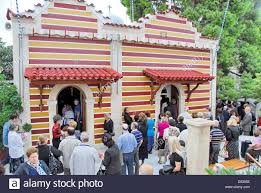 I miss the “feel” of the place, which is like nowhere I’ve known – the quiet beauty, the inner light, the holiness, always many pious pilgrims, above all the sense of Nektarios’ presence. When I concentrate my memory, I’m there again.
I miss the “feel” of the place, which is like nowhere I’ve known – the quiet beauty, the inner light, the holiness, always many pious pilgrims, above all the sense of Nektarios’ presence. When I concentrate my memory, I’m there again.
Crete
Then by air to the Big Island. (If you ever fly in Greece take Aegean Airlines. Exellent!)
Our first church experiences there were disappointing. (But later…well, just wait till next week.)
Sunday September 2: At Spili, in south central Crete, the little village clinging to the side of a mountain. I’ve told you about it before:  a big white church on the main street with fine iconography, good chanting, well done Liturgy – and every time fewer people, most of them old. Nothing against old folks now that I am one, but still… Maybe by chance we just hit “off” Sundays? Maybe the recession had hit particularly hard here? Or maybe – this is none of my businesses as a visitor, I guess, but why ever do these clergy rarely preach? People need to hear the Gospel. Why do they not encourage more Communions? People need the grace of the Eucharist. Maybe then attendance would be higher?
a big white church on the main street with fine iconography, good chanting, well done Liturgy – and every time fewer people, most of them old. Nothing against old folks now that I am one, but still… Maybe by chance we just hit “off” Sundays? Maybe the recession had hit particularly hard here? Or maybe – this is none of my businesses as a visitor, I guess, but why ever do these clergy rarely preach? People need to hear the Gospel. Why do they not encourage more Communions? People need the grace of the Eucharist. Maybe then attendance would be higher?
Friday September 7, Eve of the Nativity of the Virgin. Right down the road from the taverna where we stayed is Plakias, another small village, with an extremely small church which was not at all attractive on the outside. It had never even been open before, but now at 5 the bells rang. I hurried down the hill, entered and found gorgeous iconography, a priest, a female chanter and one little girl. That was it. It was tourist season and maybe most people were working? But how sad.
Right down the road from the taverna where we stayed is Plakias, another small village, with an extremely small church which was not at all attractive on the outside. It had never even been open before, but now at 5 the bells rang. I hurried down the hill, entered and found gorgeous iconography, a priest, a female chanter and one little girl. That was it. It was tourist season and maybe most people were working? But how sad.
Now at last things began to improve:
Sunday September 9: In Asomatos, another village near our inn, the tiny church we had visited before was again full (which wasn’t hard to do) – a kindly priest presiding, good chanting by a layman and that old priest who you could tell had once been an excellent chanter but now must have been going deaf, for he was more off key each time. During Liturgy a little boy was wandering around, so an old man let him walk with his cane and everybody smiled. And a sermon! A happy homey place.
By the way, it’s easy to locate churches in Greece. On Sunday many have loud (and I do mean loud) speakers outside which broadcast the services. Should we Orthodox do that in America? Not! – in Cedarburg the Lutherans would get us for disturbing the peace!
That afternoon we drove up into the lush Amari Valley, high in the mountains, partly for the lovely scenery but also to see a church with 14th century murals. A little widow let us in. Then she tried to sell us tourist stuff.
high in the mountains, partly for the lovely scenery but also to see a church with 14th century murals. A little widow let us in. Then she tried to sell us tourist stuff.
We continued over a mountain to Arkadi Monastery, a national shrine  recently rebuilt and for good reason. In 1866 Turkish troops breached the walls and the Greek monks, rather than surrender, set fire to the ammunition room killing most of the attacking Turks, as well as the monks and many others who had taken refuge.
recently rebuilt and for good reason. In 1866 Turkish troops breached the walls and the Greek monks, rather than surrender, set fire to the ammunition room killing most of the attacking Turks, as well as the monks and many others who had taken refuge.

The ossuary outside the monastery was filled with their skulls and bones. Kyrie eleison.
On Tuesday September 11, while driving Khouria Dianna to the airport, we stopped as always at Panaghia Kalyviani Monastery. I’ve told you about it before: lovely place with an orphanage, old folks’ home, place for autistic children, and a conference center –  overhanging flowering trees, birds cooing, sweet smells. Aah…another place I love. We lit candles for a safe trip and for the soul of Angelica who liked it there.
overhanging flowering trees, birds cooing, sweet smells. Aah…another place I love. We lit candles for a safe trip and for the soul of Angelica who liked it there.
We stopped again at the ruins of Saint Titus Cathedral at Gortyna, the old imperial capital city of Crete and Libya, where Titus the Apostle first Bishop for Crete was located. Saracens destroyed it in the 800s, but a shell of the cathedral remains where a few candles are usually burning and sometimes even smells of incense.
We went on to wander almost alone 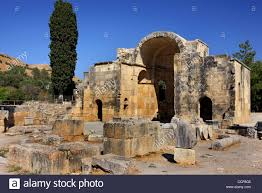 through the remains of the city. Traveling to the Old World is worth it if only to visit the ruins – to see what happens sooner or later to all countries, all cities and towns. It helps to visit some isolated ones like this, which are not filled with noisy tourists. This once busy city, now deathly quiet.
through the remains of the city. Traveling to the Old World is worth it if only to visit the ruins – to see what happens sooner or later to all countries, all cities and towns. It helps to visit some isolated ones like this, which are not filled with noisy tourists. This once busy city, now deathly quiet.
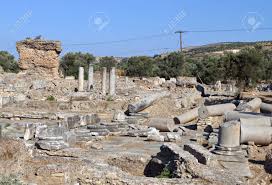
Brothers and sisters, love what we’ve got. Treasure it, and make it good, just and holy while we have it. But never forget that on earth here to the left is what it all finally comes to. Well, everything but the Church. Gortyna and the Cathedral are gone, but Orthodoxy is still here. Only God, his eternal Church and our eternal souls will last forever.
Next Week: More churches – all large and all filled with people!
Next Two Weeks: My reflections after having been Orthodox for Thirty Years
